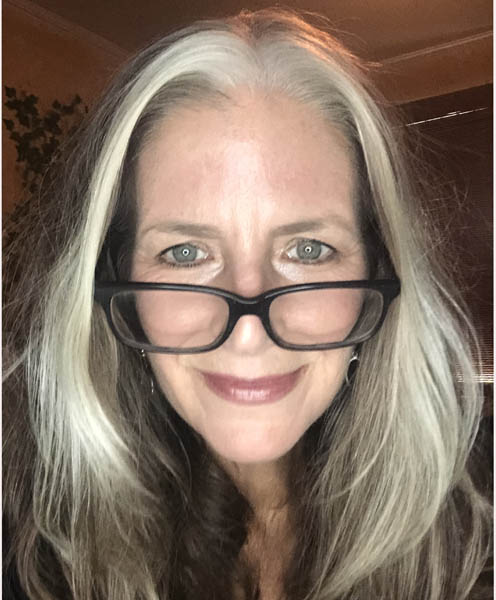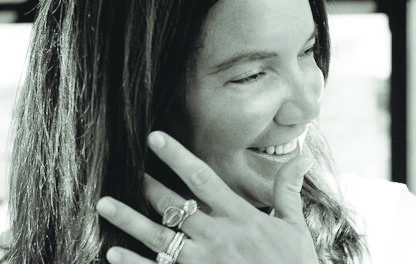I was out for my walk a few mornings ago when a neighbor stopped me to thank me for this column. She said she appreciated that somebody was consistently writing about how “overwhelmed” we all are.
Is that what I’ve been doing? Last issue, I wrote that I’d become numb to the flood of information we’re all drowning in. I think maybe “numb” is a defense mechanism against “overwhelmed.” Or maybe it’s what comes after overwhelmed.
Or before painfully fixated.
My mental novocaine wore off good and hard last week as I became increasingly obsessed with the situation in Afghanistan. By the time you read this, we will have passed the August 31 evacuation deadline, which may, or may not, have been extended. I pray there have been no more suicide bombings, and that we have managed to get everyone out “who wants to leave,” as the Biden administration keeps saying, ominously.
Over the past two weeks, I’ve put myself through a crash course on America’s adventure in Aghanistan. I’m ashamed to admit that I’d kind of stopped paying attention over the past decade or so. In recent years, if I found myself emotionally worked up about the War on Terror, I was probably watching an episode of SEAL Team on CBS.
But my uninformed nonchalance came to a screeching halt in mid-August as Afghanistan fell to the Taliban in a few short days. We were moving our daughter into her apartment at Clemson at the time, and I couldn’t fully commit to the task. I kept checking my phone for updates when I should have been fluffing pillow shams.
(The child of two news hounds, Amelia’s used to this by now. But it wasn’t my finest maternal moment.)
After that, following the evacuation effort became a 24/7 obsession. I’ve hardly been able to sleep. I have a permanent crick in my neck. I’m constantly checking CNN online for real time updates, and I’ve got cable news droning in the background of my life. I’ve read umpteen articles from myriad sources, desperately trying to understand our time in Afghanistan: why we went, why we stayed so long, why we left as we did, and what will happen now, as a consequence of our leaving.
I don’t think I’m the only American who’s confused about all of the above, though – based on what I see on social media – I might be the only American who knows she’s confused, thus unqualified to proffer an analysis.
I’m seeing lots of half-baked opinions out there. What constitutes a half-baked opinion? These days, the recipe is something like: one part information, two parts emotion, and three parts political affiliation. This is why you see Democrats all over Facebook celebrating the “absolute wonder” of the “greatest airlift in history” while Republicans are lamenting the “disgraceful debacle” of our “shameful retreat.”
It’s a weird time to be living in America, isn’t it? So many deadly serious issues confronting us, and yet, more often than not, we’re a deeply silly people. Or maybe that’s just me.
While I was trawling for the latest Afghanistan info last week, my Facebook feed offered up the following “news” for my edification . . .
From the New Yorker: “Seven Signs That Your Man’s Masculinity is Nontoxic”
(I clicked on the headline, only to learn that I’d run out of free articles. My husband is safe – for now – in his undiagnosed toxicity.)
Also from the New Yorker: “Tips for Middle-Aged Women on How to Look Stunning in Photos”
(Again, no more freebies. My stunning selfies will have to wait.)
From the Washington Post: “Padma Lakshmi says disparaging Indian food isn’t funny. It’s ugly.”
(People actually disparage Indian food? We love it at our house!)
From The Atlantic: “If you want a Marriage of Equals, then Date as Equals”
(I guessed this had something to do with going Dutch at dinner. Decided to move on, still searching for Afghanistan.)
From CNN: “Rachel Nichols’ ESPN Show Is Canceled After Her Comments About Maria Taylor”
(I don’t know who these people are, but any story with the words “canceled” and “comments” in the headline is one I’ve read a dozen times. Next.)
From Vox: “Why Defining a ‘Normal’ Amount of Drinking Is Difficult”
(There were wine glasses in the graphic. Too close to home, Vox. Moving right along . . . )
It was not lost on me that my newsfeed was “feeding” me what it thought I hungered for. My Facebook algorithmic overlords had deemed me an educated-but-frivolous American woman of a certain age, and I was being “fed” accordingly.
But I was in no mood to gobble up my usual fare. Sick of empty calories, I was seeking real sustenance.
Finally, the New York Times came through, serving up “A Journey Through Kabul on the Day of the Fall,” written by Mujib Mashal, a Times correspondent who grew up in the Afghan capital.
“In the hours before the Taliban walked into Kabul, and the two-decade quest to build a democratic Afghanistan tumbled into fear and uncertainty, I left my parents’ home to take a bus around the city. This was not a reporting outing. It was personal.”
Thus began a heartsong of such sad beauty and vivid detail, I found myself captivated from start to finish, and sobbing by the end. Mashal remembers his boyhood in Kabul, when the Taliban were toppled, recalls growing up “as new life was injected into the ruins of a capital that had been deeply scarred by civil war.”
“For years, the world felt like it was opening up to many of us,” he continues, “though on the back of an increasingly bloody war and a worried sense that corruption and mismanagement were sliding toward something ominous.”
In the days since the Taliban takeover, Mashal writes, “Kabul has been a paradox that in many ways is reminiscent of the Taliban’s 1990s rule, no matter the softer tone of their public statements.”
“On the one hand, petty crime is down, walking the streets feels physically safer, and the Taliban are touting the fact that beyond the airport, casualties of war — not long after 50 to 100 people a day were being killed — are now close to zero.
“On the other hand, there are the scenes gripping the world. Young Afghan men falling to their deaths after clinging to an American evacuation plane. Thousands of Afghan families massed outside the airport, hoping for any rescue in the last days of the Western withdrawal. The carnage of another suicide bombing, and a promise of chaos to come, even for the Taliban.”
Mashal’s essay captures the nuance and complexity so often missing from our discussions of Afghanistan lately. People now seem so certain that we “accomplished nothing” there, that “we should never have been there in the first place.” I don’t think Mashal would agree with that argument. Nor would the thousands of Afghan families desperately trying to escape their country, or the Afghan women and girls now left to the tender mercies of the “new-and-improved” Taliban.
Maybe the experts and Facebook pundits are right. Maybe we had no choice but to leave Afghanistan. And maybe it was “always going to be ugly” when we did, an expression I’ve now heard ad nauseum. But the more I learn, the less certain I am. And God help me, I can think of little else.
I’ve even lost interest in toxic masculinity and stunning middle-aged selfies.






